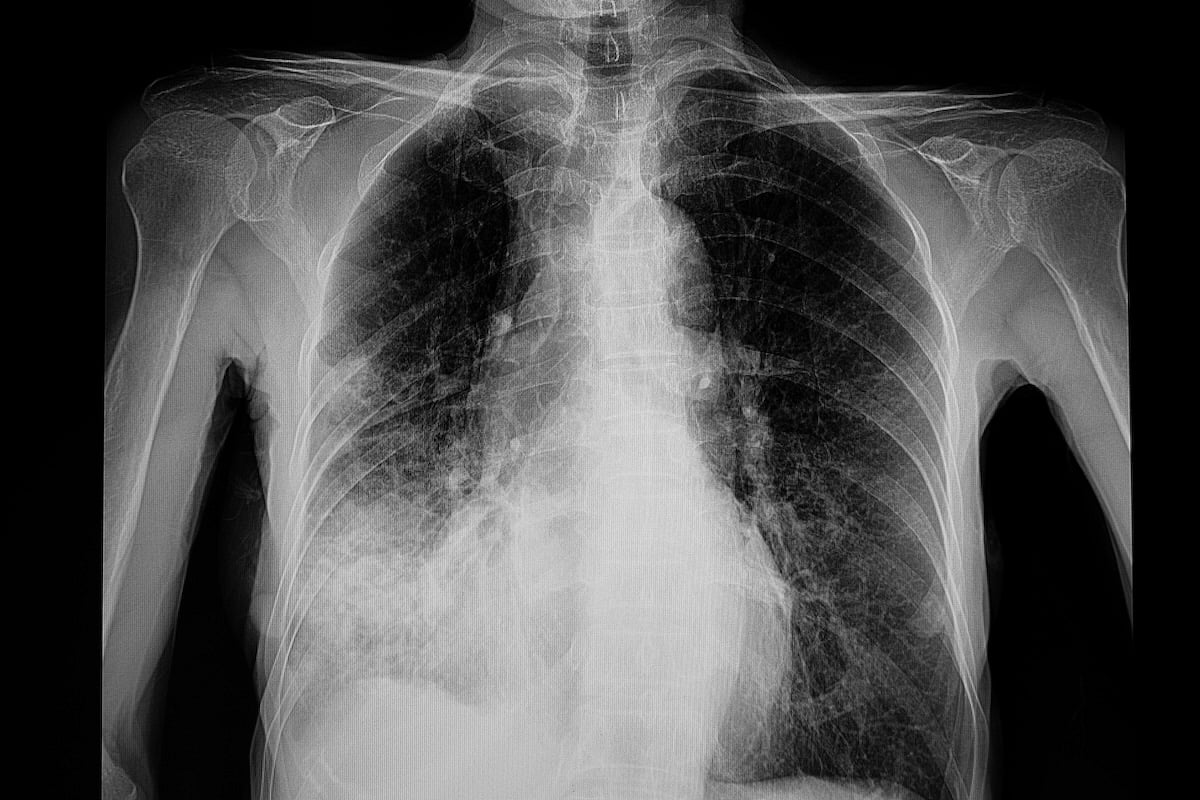Get Healthy!
Staying informed is also a great way to stay healthy. Keep up-to-date with all the latest health news here.
15 Jul
Nicotine Pouch Poisonings Soar in Young Children
Calls to U.S. poison control centers involving nicotine pouches and young kids soared 763% from 2020 to 2023.
14 Jul
Obesity-Related Cancer Deaths Tripled Over the Past Two Decades, Study Finds
Researchers discover steep increases in cancer deaths linked to obesity since 1999, especially among women, older adults and Black people.
11 Jul
‘Alarming Rise’ in Gastrointestinal Cancers in Young Adults
A new study finds early-onset gastrointestinal cancers increased by nearly 15% from 2010 to 2019.
I. Edwards HealthDay Reporter July 15, 2025
Most Major Ice Cream Brands Will Remove Synthetic Dyes by 2028
About 90% of the ice cream sold in the U.S. will no longer contain artificial dyes by 2028, federal health officials announced.
Roughly 40 ice cream and frozen dessert companies have pledged to remove seven artificial food dyes from their products in less than three years, Michael Dykes, president of the International Dairy Foods Associati... Full Page
I. Edwards HealthDay Reporter July 15, 2025
FDA Approves Gardenia-Based Blue Dye for Use in Foods and Drinks
A natural blue food coloring made from gardenia fruit has been approved by the U.S. Food and Drug Administration (FDA).
The additive — dubbed gardenia blue — can now be used in foods like sports drinks, flavored waters, fruit drinks, teas, and both hard and soft candies, the FDA announced July 14.
It’s made by takin... Full Page
I. Edwards HealthDay Reporter July 15, 2025
Study Finds No Link Between Vaccine Aluminum and Health Problems
A new study of more than 1.2 million people found no link between aluminum in childhood vaccines and long-term health problems, including autism, asthma or autoimmune diseases.
The research, published July 14 in the Annals of Internal Medicine, looked at 50 chronic conditions.
They included 36 autoimmune diseases, nine... Full Page
Dennis Thompson HealthDay Reporter July 15, 2025
Vaping Better At Helping Smokers Quit, Clinical Trial Indicates
Vaping might be more effective than traditional nicotine replacement therapies in helping people quit smoking, a new Australian study says.
Six-month smoking abstinence rates were three times higher among people using flavored nicotine-laced vape devices, compared to those given nicotine gum or lozenges, researchers reported July 14 in the... Full Page
Dennis Thompson HealthDay Reporter July 15, 2025
Nicotine Pouch Ingestions Surge Among Young Children
The number of young children who come across nicotine pouches and swallow them has surged in recent years, a new study says.
Ingestions of nicotine pouches by children younger than 6 increased an alarming 763% between 2020 and 2023, researchers reported July 14 in the journal Pediatrics.
“Nicotine pouches are a serious... Full Page
Dennis Thompson HealthDay Reporter July 15, 2025
GLP-1 Drugs Increase Risk Of Acid Reflux, GERD
Folks using GLP-1 weight loss drugs like Ozempic are more likely to suffer from severe acid reflux, a new study says.
People with type 2 diabetes were more likely to suffer from gastroesophageal reflux disease (GERD) if they were prescribed a GLP-1 drug compared to those taking sodium-glucose cotransporter-2 (SGLT-2) inhibitors, researcher... Full Page
Dennis Thompson HealthDay Reporter July 15, 2025
New Stem Cell Approach Helps Transplant Patients Drop Immune-Suppressing Drugs
Minnesota native Mark Welter needed a kidney transplant, but wasn’t happy that he’d be on immune-suppressing drugs for the rest of his life.
The drugs are critical to keep a patient’s body from rejecting a donated organ, but they come with many downsides: severe side effects like headaches or tremors, and increased risk o... Full Page
Dennis Thompson HealthDay Reporter July 15, 2025
Consistent Physical Activity Lowers Risk Of Death
Adults who are consistently physically active have an overall lower risk of premature death, even if they pick up the habit later, a new evidence review says.
People who get regular exercise are 30% to 40% less likely to suffer an early death from any cause, researchers reported July 10 in the British Journal of Sports Medicine.Full Page
Dennis Thompson HealthDay Reporter July 15, 2025
Diet, Exercise Can Help GLP-1 Patients Who Miss Doses
It can sometimes be tough to fill prescriptions for GLP-1 drugs like Wegovy and Zepbound, given the overwhelming popularity of the breakthrough weight-loss meds.
But people who miss a dose here and there shouldn’t worry about losing ground in their fight against excess weight, a new study says.
Folks on GLP-1 drugs can expect t... Full Page
I. Edwards HealthDay Reporter July 14, 2025
CDC Says COVID-19 Cases Rise in 25 States
COVID-19 cases are on the rise again across the United States, with the biggest increases in parts of the South, Southeast and West Coast.
The U.S. Centers for Disease Control and Prevention (CDC) estimates that 25 states are seeing growth in COVID cases as a summer wave appears to be starting, CBS News reported.
Even though... Full Page
I. Edwards HealthDay Reporter July 14, 2025
Bread Sold at Walmart, Kroger Recalled for Hazelnut Allergy
A popular brand of bread sold at Walmart, Kroger and other stores has been recalled in 12 U.S. states due to undeclared hazelnuts.
Hartford Bakery Inc. is recalling six lots of its Lewis Bake Shop Artisan Style 1/2 Loaf bread because they may contain hazelnuts, a tree nut that can trigger dangerous allergic reactions, People repor... Full Page
I. Edwards HealthDay Reporter July 14, 2025
Arizona Resident Dies From Pneumonic Plague
An Arizona resident has died from pneumonic plague, a rare but serious illness, health officials confirmed.
The death happened in Coconino County in Northern Arizona, which includes Flagstaff. Officials gave no information about the person who died, The Associated Press reported.
This is the first known U.S. death from... Full Page
Dennis Thompson HealthDay Reporter July 14, 2025
Diet Influences Constipation Risk, Study Says
Worried about maintaining your regularity as you grow older?
Changing your diet can reduce the risk of chronic constipation in middle-aged folks and seniors, a new study says.
The Mediterranean diet and plant-based diets were found to best ward off constipation, researchers reported recently in the journal Gastroenterology.<... Full Page
Dennis Thompson HealthDay Reporter July 14, 2025
Household Mold Can Trigger Lung Disease
Household mold can be a significant trigger for a rare but potentially debilitating lung disease that can cause permanent breathing problems, a new study says.
Mold appears to be the primary cause for nearly a quarter (23%) of 231 cases of hypersensitivity pneumonitis (HP) treated at the University of Texas Southwestern Medical Center in D... Full Page
Dennis Thompson HealthDay Reporter July 14, 2025
New Bride Survived Removal Of A 40-Pound Tumor
A young woman became a June bride months after surviving complex surgery to remove a 40-pound tumor from her body, Cedars-Sinai doctors report.
Adriana Pulido, 24, died on the operating table six times during an early attempt to remove the huge tumor.
Located near her liver, the tumor had grown so large that it had displaced her hear... Full Page
Dennis Thompson HealthDay Reporter July 14, 2025
Sugar, Sweeteners Might Trigger Early Puberty In Some Kids
Sugar and artificial sweeteners might increase the risk of early puberty in children, a new study says.
Sugar, aspartame (Equal), sucralose (Splenda) and glycyrrhizin (licorice root) are all significantly associated with a higher risk of early puberty, particularly in genetically predisposed children, researchers reported Sunday at the End... Full Page
Dennis Thompson HealthDay Reporter July 14, 2025
Menopause Hormone Therapy Boosts GLP-1 Drug Effectiveness, Researchers Say
Good news for women of a certain age: Hormone replacement therapy for menopause appears to boost the effectiveness of GLP-1 weight loss drugs like Wegovy and Zepbound, a new study says.
Women using tirzepatide (Zepbound) lost more weight if they also were taking hormone therapy — 17% of body weight lost versus 14% after a median 18 m... Full Page
Dennis Thompson HealthDay Reporter July 14, 2025
Obesity-Related Cancer Deaths More Than Triple In U.S.
Cancer deaths linked to obesity more than tripled in the U.S. during the past two decades, a new study says.
Deaths linked to the 13 types of obesity-related cancer rose to 13.5 deaths per million from 3.7 deaths per million between 1999 and 2020, researchers reported Sunday at the Endocrine Society’s annual meeting in San Francisco.... Full Page
I. Edwards HealthDay Reporter July 13, 2025
How to Stay Safe at the Beach or Pool This Summer
A day at the beach or pool is a great way to beat the summer heat — but it can also be risky if you’re not careful.
Dr. Eric Costanzo of Hackensack Meridian Jersey Shore University Medical Center has some valuable advice to help families stay safe this summer, whether at the shore or at home by the pool.
The ocean c... Full Page
Carole Tanzer Miller HealthDay Reporter July 12, 2025
Killer Whales Show a Softer Side, Sharing Food With People
They’re known as "killer whales," but orcas have a surprisingly soft and even generous side.
"Orcas often share food with each other — it’s a prosocial activity and a way that they build relationships with each other. That they also share with humans may show their interest in relating to us as well," said Jared Towers, l... Full Page


























